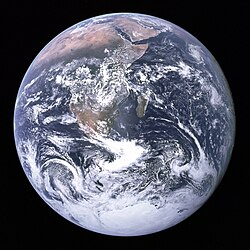We are all one with the Universe.
Our ancestors are speaking to us. Jessie “Little Doe” Baird heard and responded. Despite today’s fast paced life in a world often filled with blind, senseless communication where many university students would rather have access to the internet than a car or friends, there are still those who explore the globe not for exploitation but for meaning.
Last weekend my favorite film festival unleashed its quiet roar of indigenous and underrepresented minorities voices. The National Geographic's All Roads Film Project is one of those rare entities which under promises and over delivers. I have never seen an All Roads film I didn’t like. I ambitiously watched 9 films this time. Of particular interest are: Mana I Ka Leo (The Power of Voice), Papa Mau: The Wayfinder, and Grab.
Mana I Ka Leo tells us people are turning to the indigenous for answers because they have kept the wisdom of their ancestors. The ancient Hawaiians created an oral tradition called Oli which enabled them to chant the teachings to live compatibly with other humans, the environment, and the gods.
Papa Mau was one of the last known Polynesian traditional (non-instrument) navigators. He shared the learning of his ancestors with a group of Hawaiian cultural revival voyagers and they sailed without a map to Tahiti—a place Papa Mau had not been taught the precise course by his ancestors.
Papa Mau and the Hawaiians did not share a spoken language yet set sail for 30 days on the maiden voyage. The original plan was to sail back to Hawaii but Papa Mau was discouraged by the bickering of the Hawaiian crew and slipped off alone in Tahiti, leaving directions for their return. He was determined not to sail with them again but he later let bygones be bygones and he stood up as a leader and teacher to pass on the ways of the ancestors.
Grab, on the other hand, is a rare glimpse at a ceremony never before shared outside of the community which deliberately blends the practices of two cultures. When the Spanish invaded the land of the Pueblo people in the 17th century they forced the indigenous into servitude and religious conversion. The Pueblos successfully revolted and the Spanish left. They did however return nearly a century later. This time the Spanish wanted to coexist with the indigenous. The Laguna Pueblo were always open to living in harmony with the Spanish and came to respect their religious differences. As a bow to Spanish Catholicism the Laguna Pueblo found a way to merge the cultures.
For the Laguna Pueblo who names their children after saints, on the saint’s day, after much preparation a feast and a grab are held. The family gathers on their rooftops with baskets of food, water, and gifts to generously redistribute the wealth to the gathered community below.
Traditionally the Laguna Pueblo shared freshly harvested home grown vegetables and handmade goods. But a third culture has covertly embedded itself in the ceremony. The Western culture of overweight, obese, and morbidly obese throw today’s grab goods of processed foods, plastic toys, and very few traditional items.
Many of these stories and teachings have long been restricted within the community. Why are we having an unprecedented number of ancient revivals and indigenous stories coming forward?
Is there anybody listening?
In his book Prison Writings: My Life is My Sundance, Leonard Peltier speaks about the indigenous voice: “We speak for those who are not yet born. When you exclude us, you exclude your own conscience. We are your conscience!” He continues, “We are your own conscience calling to you. We are you yourself crying unheard within you.”
All my relations.

No comments:
Post a Comment